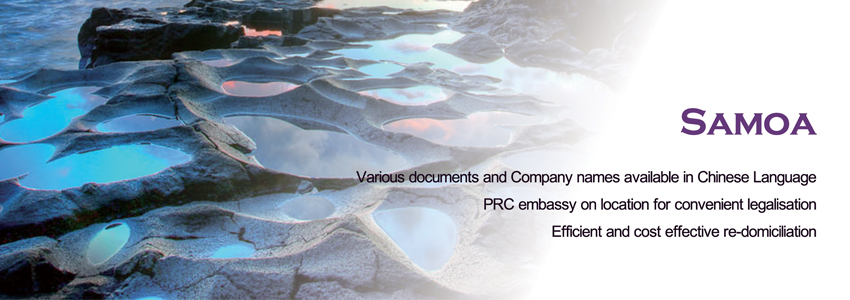
Samoa's economic freedom score is 61.1, making its economy the 84th freest in the 2014 Index. Its score is 4 points better this year due to significant improvements in four of the 10 economic freedoms including investment freedom, trade freedom, and the control of government spending. Samoa is ranked 14th out of 42 countries in the Asia–Pacific region, and its overall score is above the world and regional averages.
Samoa was first rated in the 1997 Index, and its economic freedom score has advanced since then by over 13 points, with gains in eight of the 10 economic freedoms including fiscal freedom, the control of government spending, and especially trade freedom, which improved by 75 points. Grading of Samoa was suspended from 2002 to 2008, and much of this progress has occurred since 2009 when the Index resumed assessing its economic freedom.
Recording its highest economic freedom score ever in the 2014 Index, Samoa has regained its “moderately free” status. Nevertheless, it still lags in promoting the effective rule of law. The judicial system remains vulnerable to political interference, and property rights are not strongly protected. Corruption further undermines enforcement of the rule of law.
Samoa is a small South Pacific archipelago with a population of less than 200,000. Independent since 1962, it is now a multi-party democracy dominated politically by the Human Rights Protection Party. After the 2011 parliamentary elections, a few politicians were found guilty of bribery, but the HRPP remained in power. The economy is based mostly on fishing, agriculture, and tourism. Remittances from Samoans working abroad account for about 24 percent of national income. A sizable tsunami in 2009 killed over 200 people and significantly damaged infrastructure and property. To facilitate better trade with Australia and New Zealand, Samoa officially moved west of the International Date Line in 2011.
Rule of Law
Official corruption and abuses are a source of increasing public discontent. The English common law–based judiciary is independent and upholds the right to a fair trial. However, a modern and well-functioning legal framework for land ownership and enforcement of property rights is not firmly in place. More than 80 percent of the land is owned by extended families represented by their chiefs.
Limited Government
Samoa’s top individual income and corporate tax rates are 27 percent. Other taxes include a value-added tax (VAT) and an excise tax. The overall tax burden equals 23.4 percent of the domestic economy. Government expenditures equate to 44 percent of GDP. Public debt in the most recent year amounted to about 54 percent of gross domestic income.
Regulatory Efficiency
Launching a company takes only four procedures, and no minimum capital is required. The regulatory framework generally supports entrepreneurial activity, but application of the commercial codes is not always straightforward. A well-functioning modern labor market is not fully developed. Government subsidies funded by international donors spiked in the wake of a devastating cyclone in December 2012.
Open Markets
Samoa’s average tariff rate was 7.1 percent as of 2006. Some sectors of the economy are reserved for domestic investors, and new foreign investment is screened by the government. Samoa’s small and underdeveloped financial sector is dominated by banking. Although bank lending to the private sector has increased rapidly in recent years, a significant portion of the population remains outside the formal banking sector.
Source: 2004 Index of Economic Freedom
